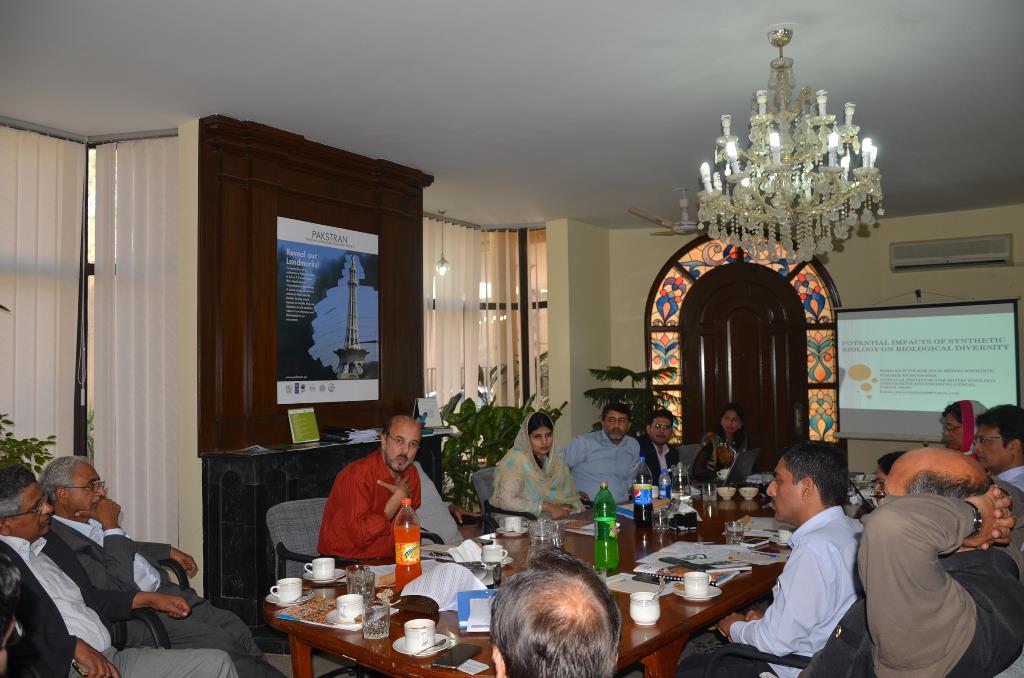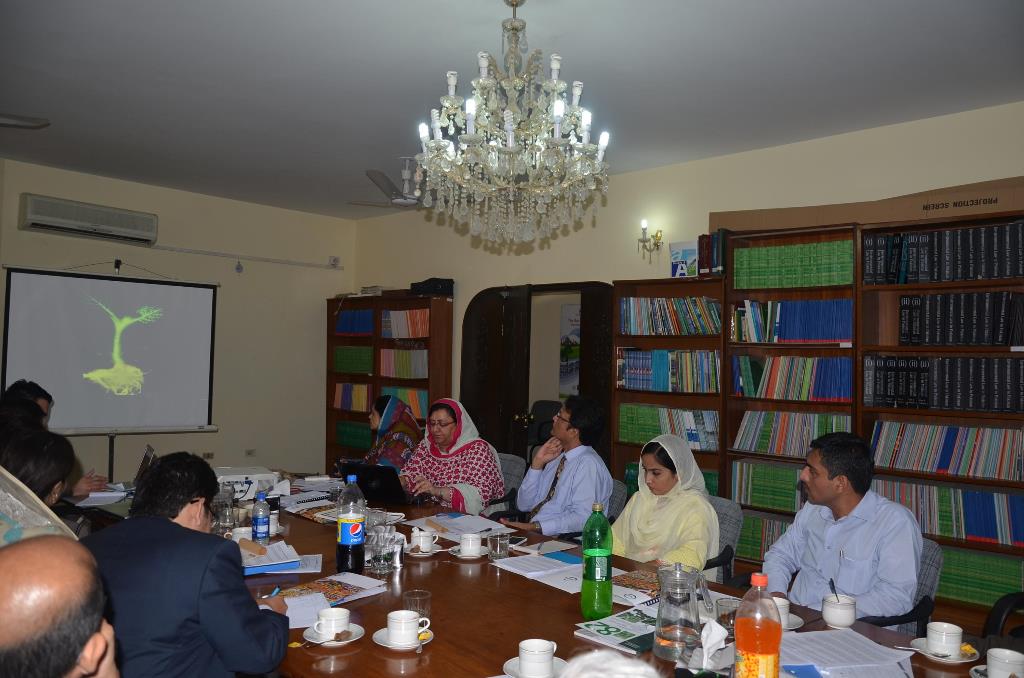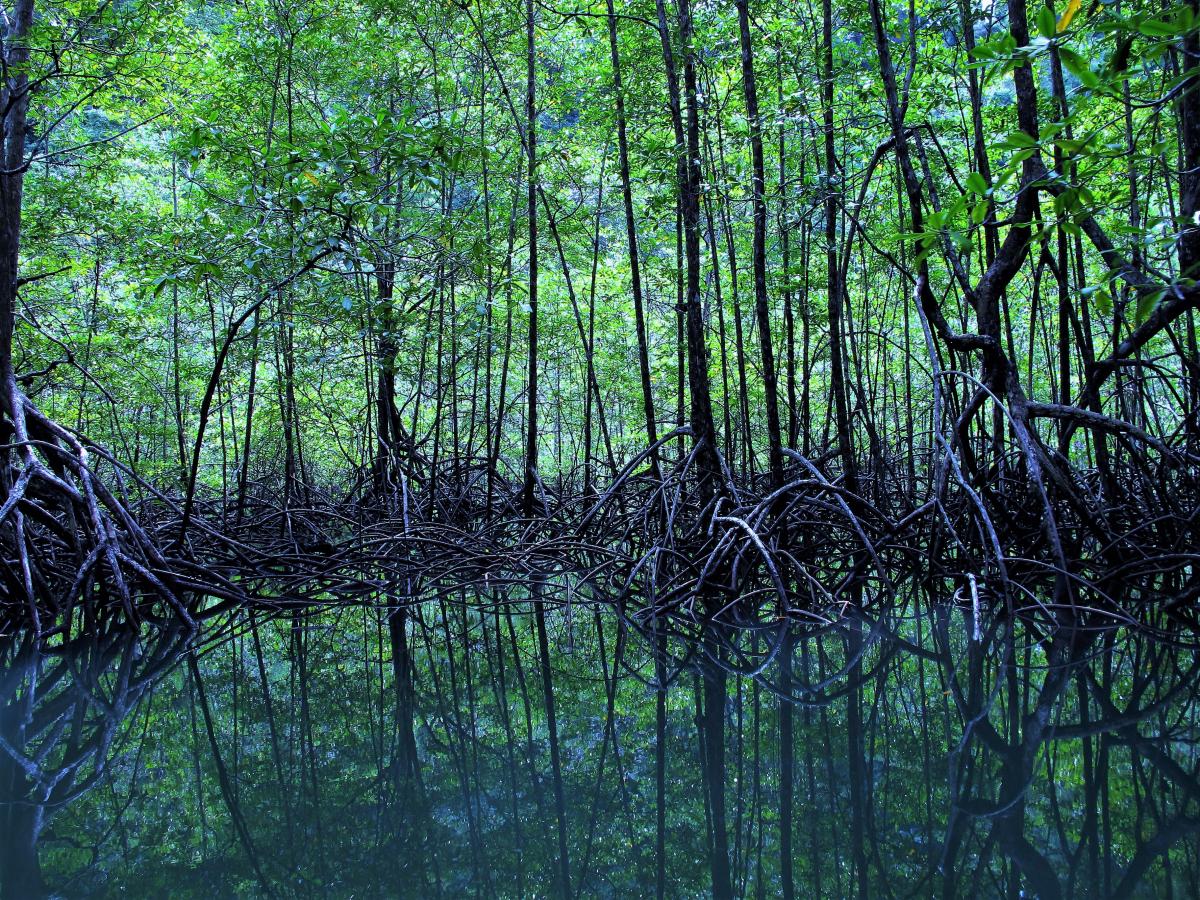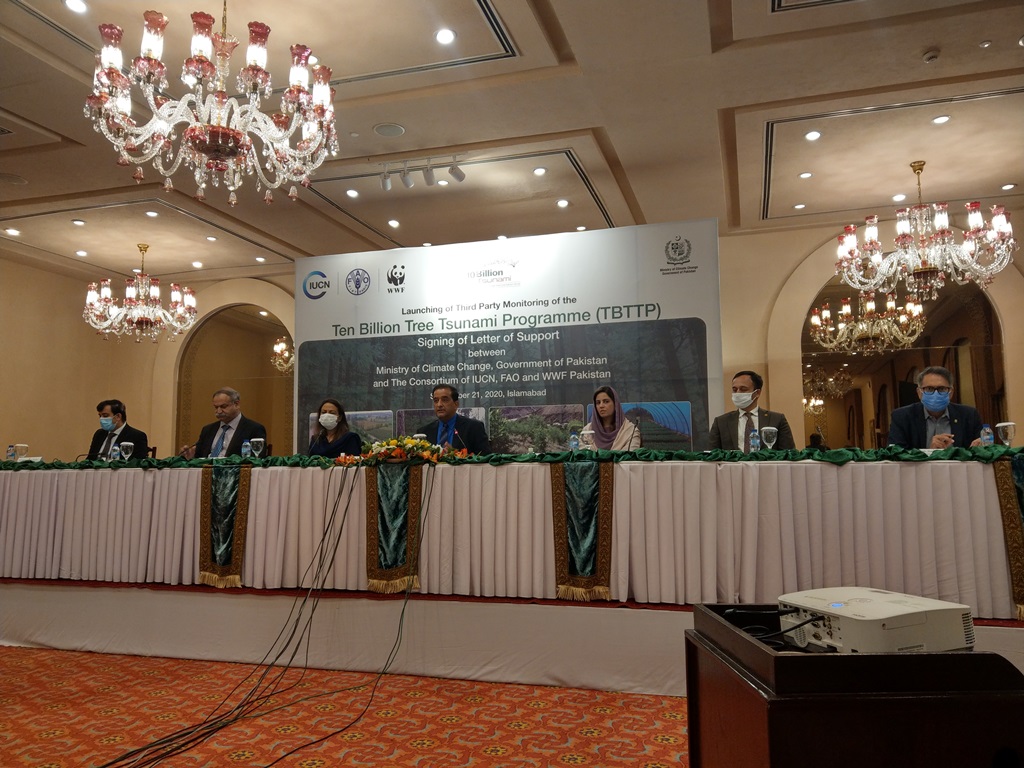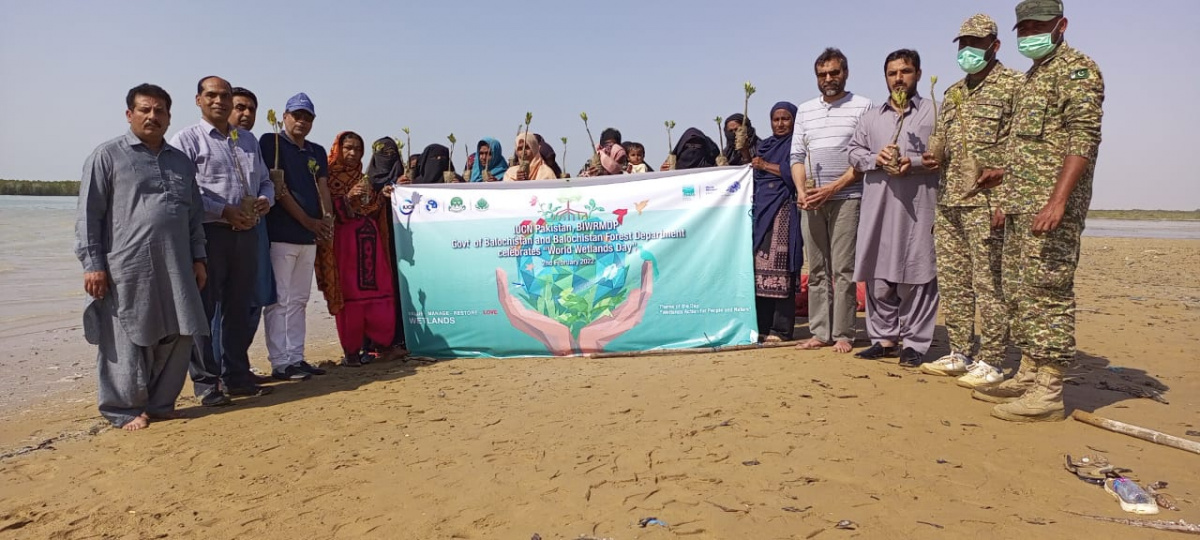‘Natural products being replaced with synthetic products’alarming, say experts
Pakistani products patented by other countries will have negative impacts – experts
A consultative meeting was organized jointly by the Ministry of Climate Change and IUCN, the International Union for Conservation of Nature, to discuss possibilities of incorporating biosafety concerns into the National Biodiversity Strategy and Action Plan (NBSAP).
IUCN is currently revising the NBSAP for the Ministry of Climate Change, Pakistan. Chaired by Syed Mahmood Nasir, Inspector General Forest, representing the Federal Ministry of Climate Change, the meeting included a debate on the Cartagena Protocol and the NBSAP. Participants included bio-safety experts hailing from academia and bio-resource institutes in Pakistan.
The debate centered on the synthetic biology and its difference from the Genetically Modified Organisms commonly called GMOs.
Dr. Romana Iftikhar of National Institute of Biotechnology and Genetic Engineering (NIBGE) expressed her concern that Cartagena Protocol only covered living organisms and not the products. She felt that there was a need to develop new protocols that covered both. The experts said it was alarming that natural products were being replaced with synthetic products.“This has serious socio-economic implications as it enhances poverty, impacting the growers of the natural products,” said Dr. Iftikhar.
They also highlighted that the products from Pakistan have been patented by other countries which could lead to negative impacts for Pakistan. She added that it is important to assess the use of synthetic biology “where currently there is no regulation on this in Pakistan”. She was of the view that the technical experts are not exposed to the policy side of the government and its point of view.
Another point of view shared by Dr. Zabita Shinwari of Department of Biotechnology, Quaid-e-Azam University was that micro-organisms could adopt themselves quickly as compared to the complex macro-organisms like humans and plants etc. “Pakistan has the best geography and the best temperature diversity and that translates into the treasure of diverse biodiversity in the country,” she added.
Syed Mahmood Nasir, Inspector General Forest, suggested bridging the gap between the scientists and policy makers for mutual benefit towards the largest interest of the country. In this regard he suggested a national workshop comprising senior scientists, policy makers and young scientists. He also said that the status, trends, threats and opportunities in synthetic biology in Pakistan should be included in the National Biodiversity Strategy and Action Plan.
Dr. Javed Ahmad of IUCN suggested that the National Biodiversity Strategy and Action Plan be a working document so the mechanisms are developed and implemented accordingly.
Dr. Faisal Khan, Director, Institute of Integrative Biosciences, CECOS University Peshawar made a presentation on the dawn of Synthetic Biology, and lamented that “we are still lagging behind in this field”. He said that the rate of development in DNA sequencing was now 13 times faster than the Information Technology. He viewed the new technology of having a very high economic value.
For more information, please contact:
GeorgeSadiq
Programme Officer
Education Communication and Outreach
Cell: 0301-2931184
E-mail: george.sadiq@iucn.org
